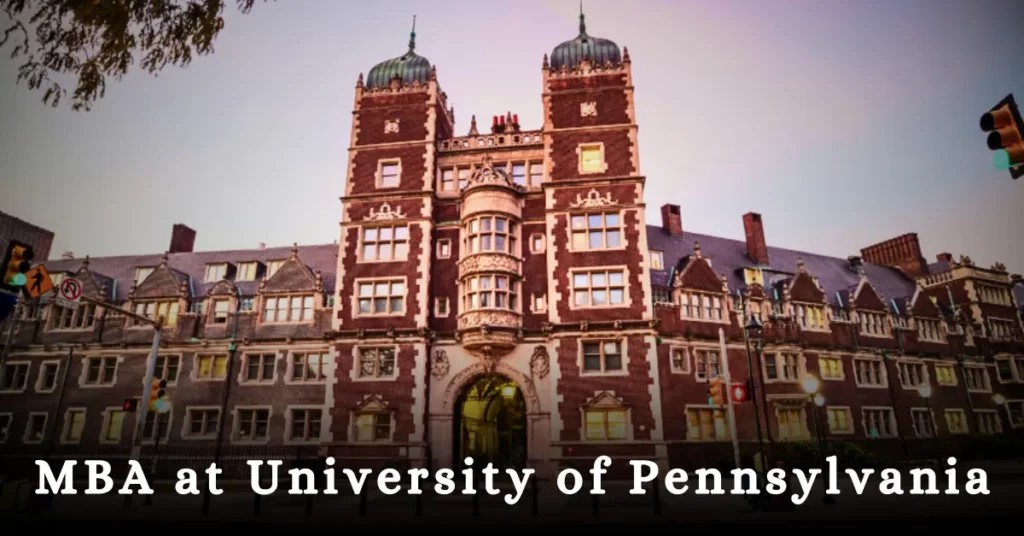Body
Overview
Wharton is very competitive: they receive 6,000-7,000 applications per year for the full-time MBA. From that, about 1,000 are admitted into a class that ends up being around 840 students.
The process is holistic: academic record, test scores, leadership, professional & personal qualities, essays, interview, etc.
Key Requirements / Components
|
Component |
What is required / what they look for |
|
Undergraduate degree / Transcripts |
Bachelor’s degree (or equivalent) from an accredited institution. Submit transcripts for all academic programs attended (undergrad + any graduate). If it's non-English, translations are needed. |
|
Standardized Tests |
GMAT or GRE is required (either format; they accept both test center and online versions). For non-native English / non-English instruction degrees: English proficiency test required (TOEFL, IELTS, PTE, Duolingo). Sometimes waived if the degree was in English. |
|
Essays |
A few essays are required. E.g.: goals (post-MBA & long term), plus what value you bring / how you plan to contribute to Wharton. For reapplicants, there’s also a question about growth since the prior application. |
|
Resume |
One-page resume showing work experience, leadership, achievements, progression, skills. |
|
Letters of Recommendation |
Wharton requires one recommendation letter (preferably from a current or former supervisor). For some joint programs (e.g. JD/MBA) or re-applicant settings, more may be needed. |
|
Interview |
By invitation only. Applicants are reviewed first; only some move to interview stage. If invited, you must do the interview. |
|
Other |
Application fee (non-refundable). Wharton offers fee waivers in cases of financial hardship or for veterans. |
Application Rounds & Deadlines
Wharton has three main rounds of admissions plus a “Deferred Admission Round.”
-
Round 1: Early fall
-
Round 2: Usually winter
-
Round 3: Usually spring
-
Deferred: for those planning ahead (e.g. current students, early career, etc.)
Deadlines are strict; all materials (transcripts, test scores, essays, recommendations) need to be submitted by the deadline of the round you are applying in. Missing items can hurt or disqualify.
What Wharton Looks For in Applicants
Beyond just having all the required documents, Wharton’s admissions committee evaluates candidates on several qualitative and quantitative dimensions:
-
Academic strength: grades, rigor of program, quantitative skills. If you come from a non-business or liberal arts background, showing quantitative coursework or strength helps.
-
Test scores: GMAT/GRE percentiles, and English test if required. They consider high scores favorably but they’re not the only factor.
-
Work experience: Depth, leadership roles, responsibilities, progression. Usually applicants have ~5-6 years of relevant work experience, though early career candidates are also considered if strong.
-
Leadership and impact: What you’ve done, not just your role/title. How you made a difference. Extracurriculars, community service, initiatives.
-
Career goals & fit: Clarity of what you want to do after MBA; why Wharton; how the MBA helps you reach your goals.
-
Personal qualities and contributions: Diversity of background, values, how you’ll add to the Wharton community, collaboration, teamwork etc.
Interview / Post-Application Process
-
After your application is submitted, the admissions committee does an initial review (two readers independently).
-
If selected, you receive an invitation to interview. The interview is mandatory if you’re going to be admitted.
-
The interview may include a Team-Based Discussion (TBD) in addition to more traditional individual interview components.
-
After interviews, final decisions are made for all rounds. Non-admit, waitlist, or accept.
After Admission (If Accepted)
If you are admitted, there are a few more steps:
-
Deposit & enrollment form: You’ll need to accept the offer, submit a deposit (non-refundable) by a given date.
-
Verification: Wharton performs a background verification (through external vendor).
-
Official transcripts / test scores: Even if you submitted unofficial or self-reported earlier, the school will ask for official versions.
Tips & Common Mistakes
Here are what applicants often do well / could do better:
-
Be very clear and realistic in your essays about what you want to do after MBA, and why Wharton is a good match.
-
Strong recommendations: they should be from people who know you well, and can comment on your leadership and character, not just the job title.
-
Make sure your application is consistent (goals, narrative).
-
Don’t submit just “good enough” test scores; if one area is weak, try to compensate elsewhere.
-
For international applicants: getting English proficiency and transcript/evaluation stuff sorted early.


